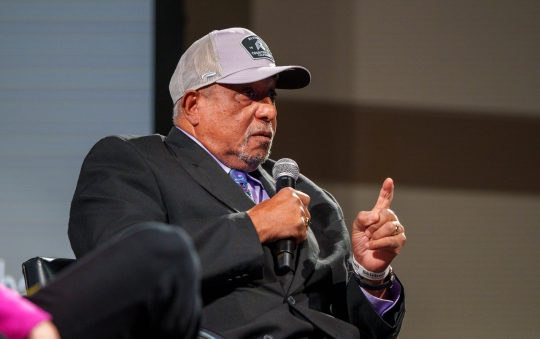LEGENDS
They pioneered the way for generations of elected officials
By Yussuf J. Simmonds
Sentinel Managing Editor
In February 2007, the California State Assembly adopted a bill referencing Black History Month and it read, “From the earliest days of the United States, the course of its history has been greatly influenced by Black heroes and pioneers in many diverse areas, from science, medicine, business, and education to government, industry, and social leadership. Among those Americans who have enriched our society are the members of the African-American community, individuals who have been steadfast in their commitment to promoting brotherhood, equality, and justice for all.”
California African American State Legislators began their journey in the Assembly in 1918, and have led the way for Black elected officials throughout the state, and to Washington, D.C. In fact, except for (former Congress-members) Ron Dellums and Walter Tucker III, all of the Black members of Congress from California, began in the state legislature. And they began with:
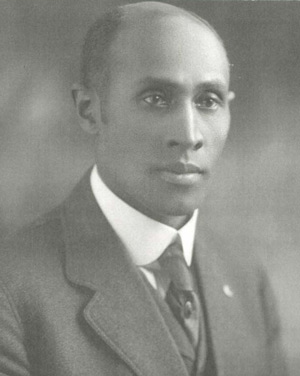
FREDERICK M. ROBERTS
In 1918, Roberts was elected to the California State Assembly from the 62nd District as a Republican in a hard-fought campaign, during which his chief rival issued racial slurs against him. While in office, he sponsored legislation to establish the University of California at Los Angeles and improve public education. He also proposed several civil rights and anti-lynching measures during his 16 years in the assembly, becoming known as the Dean of the Assembly.
Roberts had a somewhat extensive background in business before becoming the first Black assemblyman in California. He was also the first African American graduate at Los Angeles High School; majored in pre-law at USC and graduated at Colorado College. His family had a strong tradition of college education and business, and was prominent in the Los Angeles area. His father established the first black-owned mortuary in L.A. and Roberts, in preparing to assume the helm of the family business, attended the Barnes-Worsham School of Embalming and Mortuary Science.
As founder and editor of the New Age Dispatch newspaper and co-owner in a mortuary business, A.J. Roberts & Son, along with his father, Roberts played a prominent role in the growing African-American community of L.A., as Blacks from the South migrated to the City of the Angeles. Roberts understood the need for Blacks to fight for civil rights and to become politically active, and he worked diligently through the NAACP and the Urban League towards that goal. He knew that working for civil and political rights for Blacks would take joint and unified efforts.
In order to lead by example, Roberts ran and was elected in 1918. After Franklin D. Roosevelt’s election in 1934, the Republican’s mantra as ‘the party of Lincoln’ faded and a Democrat defeated Roberts. He later ran twice for Congress but was unsuccessful.
Roberts was married to Pearl Hinds and they had a daughter Gloria. He died from a serious automobile accident in Los Angeles at County General Hospital.
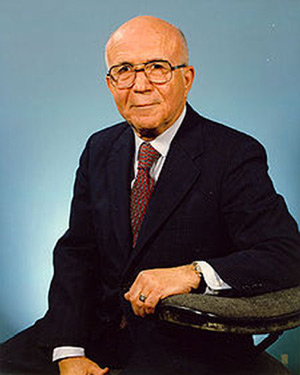
AUGUSTUS “GUS” F. HAWKINS
When retired Congressman Augustus Hawkins died in 2007, he was eulogized, “A centenarian of immense popularity, Hawkins was a political icon and a legislative pioneer who paved the way in the United States Congress and the California State Assembly for the current generation of legislators.” He was the oldest living member of Congress up to that time and since.
Both in the state assembly and as the first African American elected to Congress from California, Hawkins lighted a legislative pathway for others to follow. He was diminutive in physical stature and soft-spoken, but his achievements, particularly in progressive and civil rights legislation, far over-shadowed his physical being. He went to the assembly in 1935, the 62nd district, as a part of the New Deal thrust that swept the country after the Great Depression, and he served there until 1962 when he was elected to the U.S. Congress. While in the assembly, Hawkins was a delegate to the Democratic National Conventions of 1940, 1944 and 1960.
During his 28 years in the state assembly, Hawkins authored a multitude of legislative measures in the areas of adult education, apprenticeship training, slum clearance; low cost housing; workmen’s compensation for domestics; disability insurance; pensions for senior citizens; and childcare centers. Specifically, Hawkins was responsible for The Fair Employment Practice Act of 1959; and the Manpower Development and Training Act of 1962; and The Fair Housing Act of 1963. He served as Chairman of the Rules, Public Utilities, Labor and Capital, Unemployment Committees and the Joint Committee on Legislative Organization.
In 1963, when he went to Congress, not only was he the first African American from California, Hawkins was also the first African American in Congress West of the Mississippi River. And while in Congress, he was as strident in his focus to serve his constituents as he had been in the California State Assembly; he was a prolific author of quality legislation that affected the forgotten of America, especially in the areas of jobs/labor, housing, health, urban redevelopment and education. Hawkins was a founding member of the Congressional Black Caucus in January 4, 1969, ‘the Conscience of Congress’ which was then known as the Democratic Select Committee.
In 1976, the Brotherhood Crusade honored Hawkins as a pioneer of Black political leadership. Danny J. Bakewell, Sr., then the executive director of the Brotherhood Crusade, remembered Hawkins as “a scholar and a hard worker who preferred to work behind the scenes, and a formidable infighter; a man of great integrity who had the courage and power to stand by his convictions.”
And in 1986, Congressman Hawkins brought together African American educators and organizational leaders to form the National Council on Educating Black Children. The mission of NCEBC is to improve the quality of education for African American youth based on the correlates found in the More Effective Schools Research of noted African American educator Ron Edmonds. Hawkins served in Congress until 1991 – for 28 years as he did in the assembly.
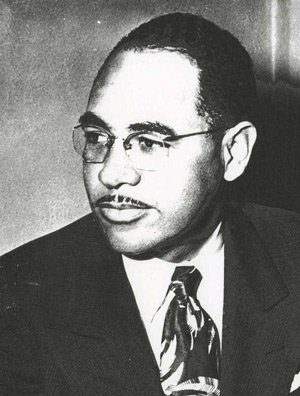
W. BYRON RUMFORD
In 1964, Time magazine ran a story beginning with, “Who is W. Byron Rumford? For the record, he is a 56-year old resident of Berkeley, a negro, and a veteran Democratic member of the California state legislature.” Back in 1949, when Rumford joined the California Legislature, the only other Black legislator there was Augustus Hawkins; and he was the first from Northern California. He remained in the assembly until 1966.
As assemblyman, Rumford chaired the Public Health Committee, where he completed numerous major studies related to Public Health including the Impact of Air Pollution, Hospitals and Hospital construction, Fluoridation, Radiation Control, Mental Health Drugs, Narcotic Addiction and Rehabilitation, Nursing, Medical Practices, Accident Prevention, and Restaurant Sanitation. In the field of Air Pollution Control, Rumford was instrumental in developing legislation which established the Bay Area Air Pollution Control District. He also authored the bill which required the Department of Public Health to establish standards for the quality of air, and to designate hazardous pollution areas throughout the State.
In his role as chairman, Rumford also conducted Public Health Committee investigations which re-organized the State Division of Narcotics, and introduced legislation which provided for the rehabilitation and treatment of narcotic addicts. Then in 1955, Rumford successfully authored legislation to allocate federal and state funds for the construction of hospitals in the state, and as chairman, provided an appropriation of $3,000,000 to the Department of Public Health for purchase and administration of polio vaccine. This eventually led to an ancillary/companion bill to exempt prescribed medicines and insulin from State sales tax.
But it was in the area of human rights that Rumford made the greatest legislative impact. He introduced bills prohibiting discrimination in the hiring of public school teachers; the establishment of California’s Fair Employment Practices Commission; the integration of the National Guard; and legislation prohibiting racial discrimination in the sales and rentals of housing throughout the State. In addition, Rumford was a member of the Government Organization Committee where he participated in legislation designed to re-organize the State Board of Equalization, and to the establishment of the new Alcoholic Beverage Control Department of that agency. Other committees on which Rumford held membership, were Finance and Insurance, and Revenue and Taxation.
The brouhaha that triggered the Time magazine article in 1964 was the Assembly Bill 1240, Rumford authored that became known as the Rumford Act; it began a national debate on discrimination. This important bill prohibited discrimination based on race or creed in the sale or rental of real estate property in California. The California Real Estate Association strongly opposed the bill and successfully petitioned California voters to pass Proposition 14 to nullify the Rumford Act. Ultimately, the California Supreme Court held Proposition 14 unconstitutional under the federal Constitution. The Rumford Act became a landmark piece of legislation and still exerts a strong impact as one of the cornerstones of civil rights in California.
Rumford played a major legislative role in developing two of the most important social service fields related to the quality of life for all Californians: Human Rights and Public Health. Because of his dogged efforts in these fields and his tenure as a legislator, Rumford gained the respect and admiration of his fellow citizens throughout the State of California.
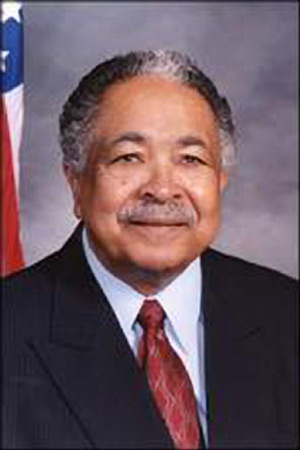
MERVYN M. DYMALLY
When Mervyn M. Dymally was first elected to the assembly in 1962, Hawkins, his political mentor, was about to leave Sacramento for Washington D.C. In commenting on the death of Hawkins, Dymally said, “Had it not been for Gus, I would not be in politics today. He was my friend and my mentor.” As it turned out, Dymally became a powerhouse in mentoring politicians throughout his illustrious career.
When Dymally left Trinidad, the land of his birth, little did the world know what to expect from that young, 19 year-old Black man from the Caribbean. During the next six decades, Dymally did not disappoint his homeland nor his adopted homeland; he exceeded expectations and energized the political landscape in such a way that it would take decades to fully appreciate the impact of Dymally’s contributions to the advancement of politics, race, culture and education not only in the United States but also throughout many of the world’s developing nations.
Starting his political career as an assemblyman in 1962, Dymally went on to become the first Black State Senator in California in 1966, followed by being the first and only Black lieutenant governor of California in 1974 – often assuming the duties of governor, as the first foreign-born governor whenever the Governor was out of the state. After 11 years as a U. S. Congressman, he “claimed” to have retired only to return to the State Assembly in 2002, as dean of the assembly and where he chaired the Legislative Black Caucus.
While in the assembly where he introduced the first legislation in the U. S. to call for the teaching of “negro” history in California schools. In the Senate, he was elected chairman of the Senate Majority Caucus and introduced legislation calling for equal property rights for women. He remained in the state legislature for 12 years, a period in which he sharpened and honed his skills as master politician. Dymally saw politics as the cutting edge of the Civil Rights Movement because it empowered legislators to solidify the inroads about which the marchers and protesters were rallying in the streets. He not only saw the need, but he also took steps to fulfill them in and out of elective office. Dymally saw the need to focus on education particularly in the Black community and directed his efforts and energy in that direction. His concerns were often reflected in the bills and the causes he supported. When he was asked about the future of education in California he stated, “The future of young Blacks is education. No country offers an opportunity for growth in education as the United States. The key to it all is education.”
As lieutenant governor, Dymally was not only the President of the State Senate, but also a Regent of the University of California, and a Trustee of the California State Universities and Colleges. As lieutenant governor, Dymally said, “I believe it is the responsibility of government to assist those citizens in need to become productive members of our society.” And the way that is done is through education; it is his personal ethic and it drives him to serve the people, his family and society in general.
He is married to Alice Gueno Dymally, a former schoolteacher and has two children, Mark and Lynn, and three grandchildren, Miya, Christian and Cameron.
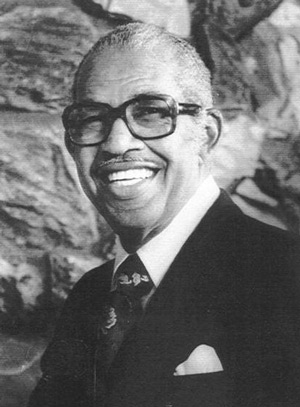
F. DOUGLAS FERRELL
In 1962, F. Douglas Ferrell, the pastor of Tabernacle of Faith Baptist Church entered the political arena and unseated an incumbent who was a twenty-five year veteran of the California Legislature. He became the first Black man elected to the California Assembly from the 55th Assembly District. He served from 1963 voluntarily retiring from office in December 1966.
According to his constituents, Pastor Ferrell was deeply concerned about events in the community and responded by becoming involved in the political life of the state and pressing forward to exert his influence to make life better for the Black people of Los Angeles, in general, and the Watts community, in particular. His work as a pastor blended with his legislative duties focusing on the youth and missionary causes.
Ferrell’s passion for the youth helped underscore the need for them to take their rightful places in the political, economic and industrial world, and he founded an organization based on what he called the “5-C Principle”- CHRIST, CHARACTER, CAPABILITY, CAPITAL, AND COOPERATION. It was a program designed to prevent, rather than cure juvenile delinquency. Ferrell mixed politics and pastoring.
Church congregations have always been a captive audience for politicians and as the first Black pastor elected to the Assembly, Ferrell held significant standing, especially among Black legislators – there were only three others – even though most of his members and constituents could not vote outside of his district. Notwithstanding, Tabernacle of Faith church was one of the largest Black churches in Los Angeles, he became a member of the Rumford-led delegation.
Migrating from Texas, Ferrell attended the Los Angeles Theological Seminary. After graduating, he founded his church and later on went into politics, “not out of necessity,” he said, “but because my community was not being represented.” While in the Assembly, he co-sponsored with Byron Rumford, the landmark legislation, Fair Housing Act, AB 1240, which became known as the Rumford Act.
Though he only served one term, Ferrell followed a tradition established by the Congressman Adam Clayton Powell, Jr., the flamboyant pastor of Harlem’s Abyssinian Baptist Church, and Rev. S. Howard Woodson, Speaker of the New Jersey General Assembly. In addition, the 55th Assembly District that Ferrell represented in the mid 1960s is quite different from the present due to re-districting and changing demographics.
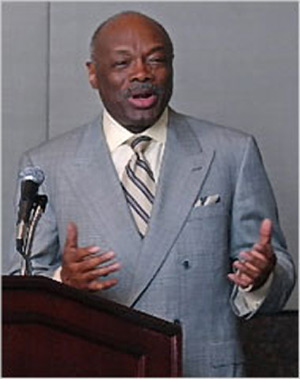
WILLIE L. BROWN, JR.
Willie L. Brown, Jr. is well known as the longest serving Speaker of the California Assembly. He served 15 years as Speaker and three decades as an assemblyman. Even when the Democrats lost control of the Assembly – and Brown was a Democrat – he was able to retain the speaker-ship by winning over enough Republicans to his side. (As a matter of fact, when Brown first became speaker, he won with 28 Republicans and 23 Democrats). It was reported that term limits was instituted to be able to remove Brown from the speaker’s position.
As an attorney who has carved out a niche in American politics in his own way, few have matched Brown in style and political acumen. He has a colorful personality and exudes charm whenever he speaks and is also a skillful politician – a superb legislator and masterful chief executive. Though his political constituency was centered in San Francisco, Brown was known well beyond the boundaries of the city.
It was the landmark “Brown v Board of Education” decision that helped Brown choose his career objective. He enrolled in the University of California (UC), Hastings College of Law and in 1958, he received his law degree and went into private practice. In 1962, he ran for the state assembly but was defeated. Two years later, he tried again and was successful. When Brown arrived in Sacramento, there were three other Black assemblymen: W. Byron Rumford, Mervyn M. Dymally and F. Douglas Ferrell. There were no Black women in the legislature.
As an assemblyman, Brown authored several bills that impacted minorities not only in his district but also throughout the state, and sometimes as a model for other states’ legislatures. He focused on the preservation of cultural landmarks; led efforts to have companies divest from doing business with South Africa’s apartheid government; secured protective equipment for law enforcement officials; strengthened worker’s compensation laws to detect fraud and engineered hundreds of legislative measures designed to improve the quality of life for all Californians.
During his tenure in the assembly, he ascended to becoming the Speaker, which also made him a UC regent, a California State University trustee, the majority leader and the youngest member to chair the powerful Ways and Means committee. He was the target of several federal investigations that often snared numerous state officials, but he always remained above the fray and was very popular among his constituents. He knew how to manage people and always knew what was going on in the state legislatures at all times.
As a result of term limits, Brown left Sacramento and in 1995, he ran for the job as mayor of San Francisco and became the first African American mayor of the city, eventually serving the maximum two terms. A skillful attorney, Brown played by the rules and at the end of his second term, he culminated almost forty years as an elected official. After leaving the mayor’s office, he continued his lucrative law practice.
In addition to practicing law, Brown hosted a radio show with Will Durst that blended humor and politics zeroing on San Franciscans’ points of view. Some of the city’s treasured institutions have been replaced with Brown’s name and some new ones have begun including Willie J. Brown Jr. Elementary School and the Willie Brown Institute on Politics and Public Service.
In 2007, Brown released his auto-biography, “Basic Brown: My Life and Our Times.”
Brown is separated and is the father of three grown children by his estranged wife: Susan Elizabeth, Robin Elaine and Michael Elliot.
Though WILSON C. RILES, THOMAS BRADLEY and GILBERT LINDSAY were not state legislators, their impact as pioneers of politics in California is unquestionable.
WILSON RILES was the first African-American to be elected to statewide office in California. Nationwide, he was also the first African-American to be elected state superintendent of schools. He was the State Superintendent of Public Instruction for the State of California from 1971 to 1983 and the nation’s highest-ranking Black educational administrator. As the State Superintendent of Public Instruction, Riles was also a member of the California Board of Regents and served on a national task force at the requests of four U. S. presidents.
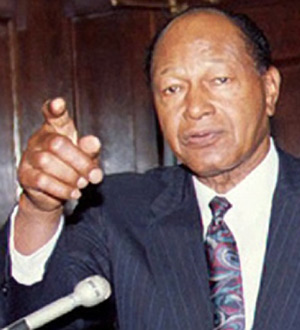
THOMAS BRADLEY became the first Black Mayor of Los Angeles in 1973 and went on to be the longest serving mayor in the city’s history, serving an unprecedented five terms. Bradley not only pioneered a historical path as the mayor, but he also cleared the way for African Americans as a police officer, an attorney and a city councilman.
GILBERT LINDSAY was the first Black councilman on the Los Angeles City Council. He was a colorful and flamboyant politician who worked his way up from city janitor to become Los Angeles’ first Black City Council member and one of its most powerful local elected officials. Along with Mayor Bradley, he is credited with helping revitalize downtown.
Â





